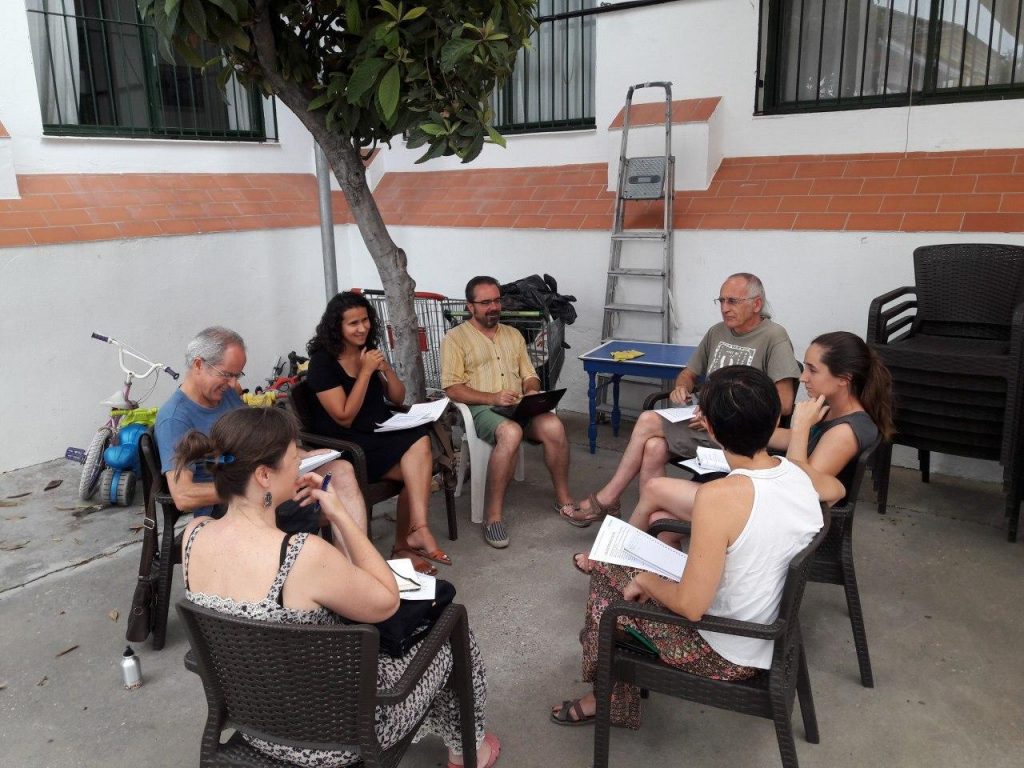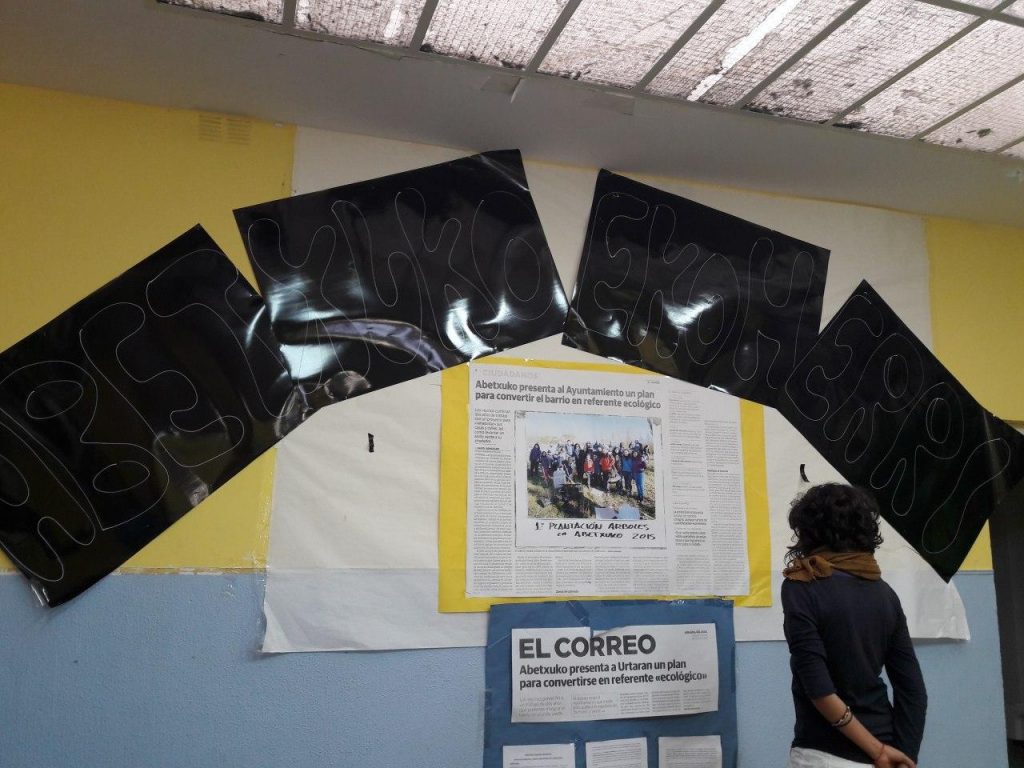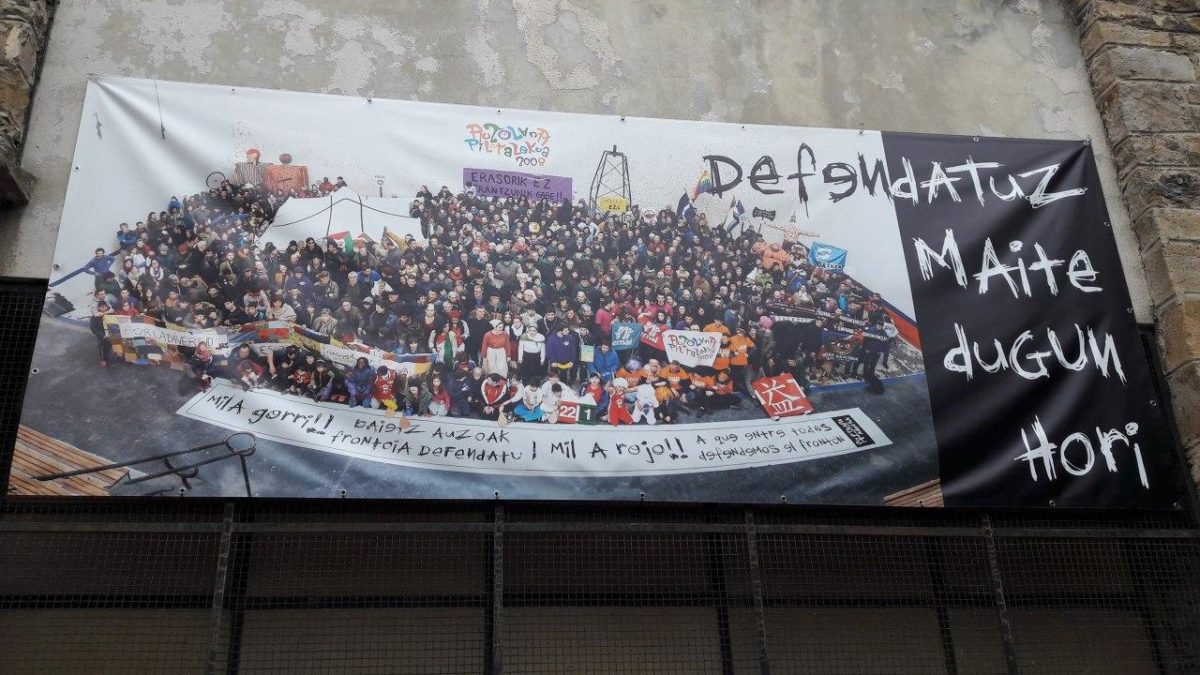In times of trending topics, political immediacy and constant updates, it becomes increasingly important to reassert the careful interpretation and use of words and concepts. This is particularly important in current political debates regarding municipalism. In a context of climate emergency and extreme social polarization, and in a world that has never been so technologized and at the same time so unjust, the formulas to address the multiple crises we face must be connected to imagining new horizons. At the same time, this may mean giving new meanings to words with a long tradition.
Municipalism is perceived by many as a crucial response to these multiple crises, leading to both the transformation and creation of new realities that are more participatory, and more capable, of reorganizing life according to humane and fair principles. Those who defend this perspective make clear that they are not talking about any kind of municipalism, but about one that is truly transformative of the way that we live, work, and even do politics together. And whose existence is proven by actions, not words. This municipalism does not make the false equation that acting locally is the same as doing things better, nor does it suggest that doing things collectively is a synonym of horizontality. Municipalism is fundamentally about democracy, and democracy should be understood as a verb that builds change, and not simply an object of decoration. While the extreme right is trying to occupy the whole political debate with simplistic discourses or by co-opting concepts that belong to the left, it will be our actions that define us.
The REDINAM network (Network to Research and Support Municipalism) recently published a report (in Spanish here) which analyses the experiences of the institutional round of Spanish municipalism that occurred between 2015-2019. The report has been written from the perspective of the social movements that decided against entering the institution, and that have experienced these years on the periphery of the institutions of the local state. They represent what we call the social leg of municipalism. The research, which was conducted with initiatives from across the Spanish State, has implications for present and future municipalist movements in Spain and beyond.

Workshop about municipalism and agro-ecology in Córdoba, organised by REDINAM
Municipalism in the Spanish State
Municipalism is a social-political practice that has evolved over the previous centuries. But what remains consistent is the attempt to build change from the bottom-up: from organisations that made autonomy possible, to those aimed at responding to basic urgencies and needs that could not wait for an answer. And sometimes it’s even impossible for formal institutions to offer those answers. The reason for the emergence of these organisations (and movements) is that the more formal administrative institutions are often more preoccupied with serving the market than meeting the needs of citizens.
Whereas people tend to identify public institutions with the elites, at the margins alternatives are built according to different logics, from the bottom, and serving people. And whilst history offers many examples of such non-institutional initiatives that have worked according to these radical logics, they have usually remained invisible to the mainstream public opinion. They have always been classified as alternative, a fact that has removed them from the normativized world-view and therefore from what can be longed for as a future.
In the case of the Spanish State, the hope that this situation could change was connected to an explicit challenge to the logics that underpinned the elitist and institutional environment. A challenge which began (again) on the 15th of May 2011. In the 15M a number of dissatisfactions converged in dialogue with the world of alternative social practices, giving people hope that another way of doing politics was possible. A few years later, many groups decided to form political platforms or parties that could enter the electoral arena in order to – in theory – build a more just reality from the bottom up, by playing the game of the elites while at the same time trying to change the rules of that game.
The challenges of the political cycle 2015-2019
After victories in a number of Spanish municipalities during the 2015 elections, these platforms faced several challenges. The primary challenge was meeting the expectations of those who delivered these platforms into government. The old politics doesn’t usually raise expectations, but this wave of change did, and they greatly exceeded those usually faced by electoral initiatives. At the same time, the urgent problems and needs faced by so many further intensified the hope that these platforms could contribute to real change. Those expectations were directed towards groups of people who had to enter a new political reality: one that was institutionalized, highly bureaucratized, and that had a limited capacity for transformation. In four years these people had to try changing the world, while at the same time navigating a sea of criticism and attack coming from traditional political actors.
The second great challenge was to meet those expectations from within the traditional institutional space of the elites, whilst being careful not to resemble those elites too much. But that was hard; their role as politicians necessitated them keeping a certain distance from social movements, whose typical strategy for political action is to exercise pressure from the streets and the squares. There was a need to take care of the movements, and to make the new roles clear, in order to gain political legitimacy. That space – the space of citizens and movements – was the origin of many of the Spanish municipalist electoral platforms, and was perceived as part of a transformative municipalist strategy. Yet whilst many of these movements wanted to remain autonomous and clearly separated from formal institutions of the state, those who were in the institution wanted to make it clear that they were there for everyone – not only for those whose ideas were similar to those of the movements. And this was particularly hard in the case of those who had already been visible in the movements, but who now held an institutional position. Given this situation, the question was: how and where would the two parts relate in this new context? The challenge was to find spaces and forms of dialogue where it was possible to engage with this complexity.
Finally, another big challenge was to demonstrate publicly that people who came from the “alternative” world were both capable and qualified to manage a city council, and to go beyond producing mere “anti-systems” in their occupation of the local government. In this regard, we could say that this posed a challenge for the transformative project: learning how to act within a formal space where the priority is to produce as many actions as possible in four years, but at the same time how to do it through forms and processes that would put life at the center. Not only the lives of the people who were inside, but also of everyone else, in every action and relationship that was generated.
Lessons learned from the electoral cycle
After almost five years in local government, the elections of June 2019 were a major setback for many of these platforms. It’s time for us to go over what happened and to analyse it; were the challenges these platforms faced addressed? To what extent did having more votes and entering local institutions really mean winning? In order to make such an assessment, we have to understand the views not only of those who have been inside the government, but also others such as those of the social movements. On many occasions – and even in those cases where they had comrades inside the institutions – the latter decided to keep on building power from the bottom up, from day-to-day actions to pressing the institution from the streets and the squares.
According to the report produced by REDINAM, the people who were inside the institution have suffered exhaustion, and in these four years most of them have burned out. In many cases they are also experiencing considerable dissatisfaction having been unable to fulfil both their own and wider movement expectations, and also because others haven’t met theirs.
In many cases, those within social movements felt that the potential for change felt much greater during the window of electoral opportunity, than in the actual reality of achieving results – which often included the responsibility to govern cities of national and international importance. The belief is that there wasn’t an accurate calculation of what the latter meant and, at the same time, that many platforms didn’t have a solid basis as a political project; the relationship between the platforms and their members was not strong enough for them to face the challenges that they would meet in the years to come. This translated into a feeling of being overwhelmed and at the same time, in many places, into internal divisions that have puzzled and disenchanted many of those who supported the candidacies in 2015.
From the standpoint of the municipalist construction of power where relationships are key, the perception from the side of the movements was that the spaces that they could find to engage with the institution were too rigid. Initiatives working on the basis of an approach that included different dimensions of social transformation, and with a broad territorial focus, had to relate with an institution that had to fit them into compartmentalised themes. This was a first source of discomfort, because there was no capacity to build new and adapted spaces that everybody could identify with, and where the inside and the outside could relate with one another.

Neighbours association in Abetxuko neighbourhood, Gasteiz
In addition, the centrality of cities has been a dominant element that has generated uneasiness in those activists living in rural areas, because it was not possible to find spaces where they could collaborate in the territory. Another missing piece was making visible that the municipality goes beyond the city council and that it encompasses diverse realities (urban and rural).
Similarly, the report observes that there has been a clash between the inhumane rhythms of the institution and the need of time to build processes that could be truly participatory. The institution can/ought to join processes, but should not be the agent setting the timelines. Institutional behaviours are informed by logics that are mainly electoralist and bureaucratic, and that don’t allow for a sustainability of those processes of collective construction. Some social movements regret that, although in these four years there has been an honest attempt from local governments to create participatory spaces, participation was usually reduced to merely attending a set of advisory meetings.
In any case, not everything was negative and movements value the fact that new fronts were opened in different areas, in spite of the failed processes. And in many city/town councils it was possible to block many horrific projects that would have moved on if someone else had been in charge.
The importance of care
As a form of conclusion, It is worth stressing the human and caring aspect (or the lack thereof) in the processes that have taken place during these last few years. On the one hand, the tension between the autonomy of social movements and the willingness to collaborate with institutions has always been present, and it has generated a distance that on many occasions became even physical. In such a scenario, caring practices became difficult to implement.
On the other hand, the multipolarity of those people coming from social movements who then became visible faces in local government turned out to be difficult to manage. Many of them are now exhausted and don’t know what their place is in the collective construction of change. It becomes very clear that, in the present moment, the hardest question is not what will become of the political confluences/parties (although that’s the most visible part), but what will happen to the people who offered their bodies and energy during all these years. That’s the reason why a feminist approach towards this collective construction cannot remain a mere option, but has to become a fundamental pillar of a municipalist politics.
Looking towards the future, it’s possible to claim that this is a time for reflection and reunion amongst those who believe that transformative municipalism is important. This is what the moment demands, and it seems that there is willingness in everyone; because in times of climate and social emergency, change cannot wait. But in order to walk together, some things are necessary: clear rules, a broad focus over processes and territories, generating a culture of dialogue, and a lot of care as the basis. After the electoral results of the last municipal elections of 2019, nothing is closed. Things keep moving forward, this time starting from a reality that is very different to the one of five years ago.
Featured image: A “fronton” that was regained by neighbours in the old part of Gasteiz (Basque Country)
Photos by: Isabel Álvarez



